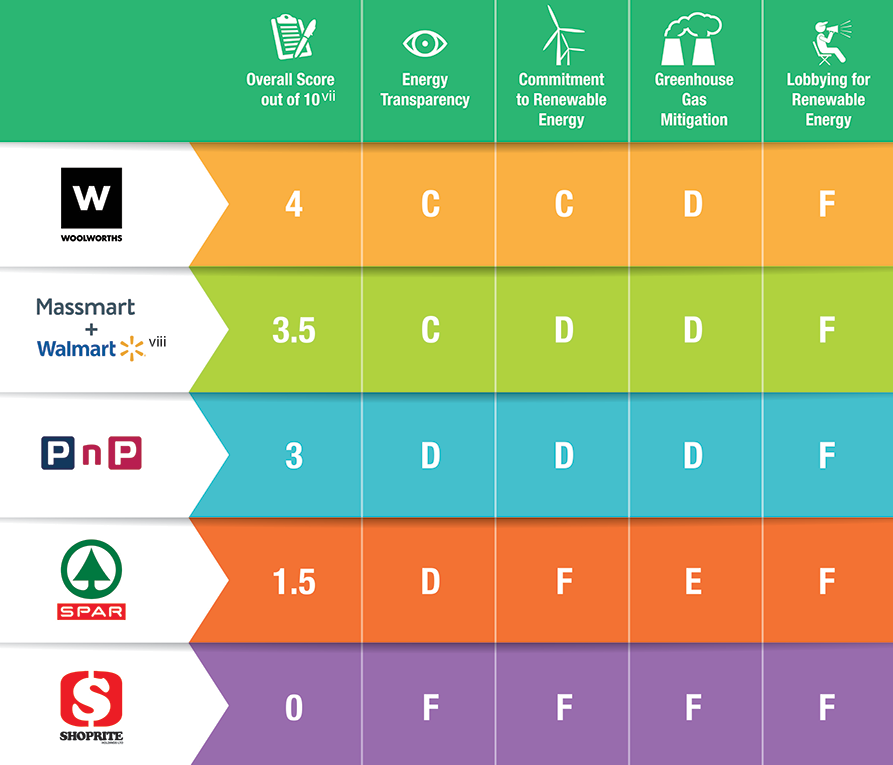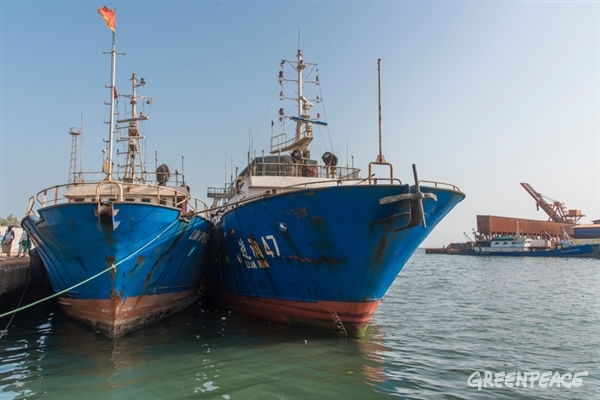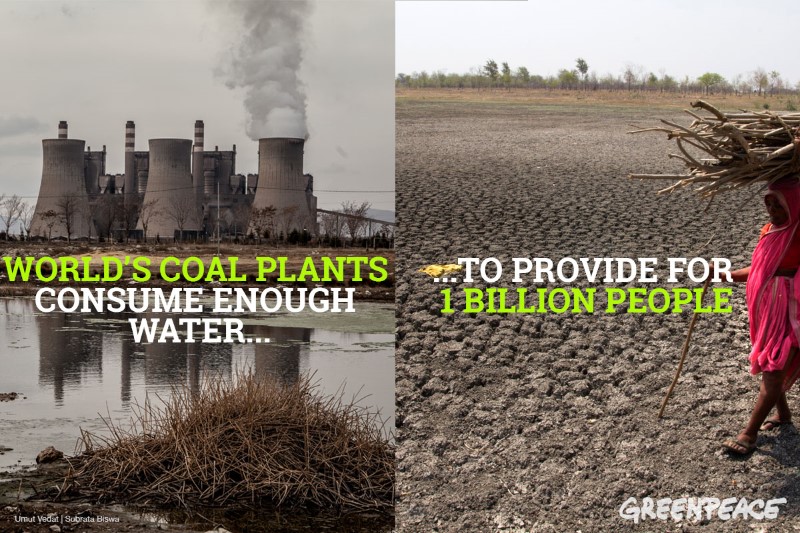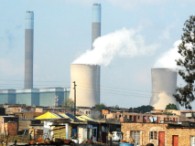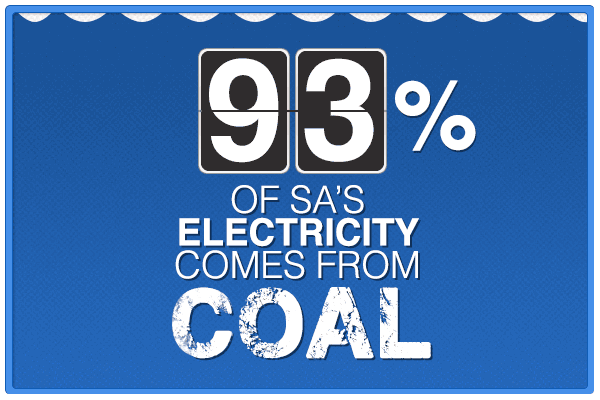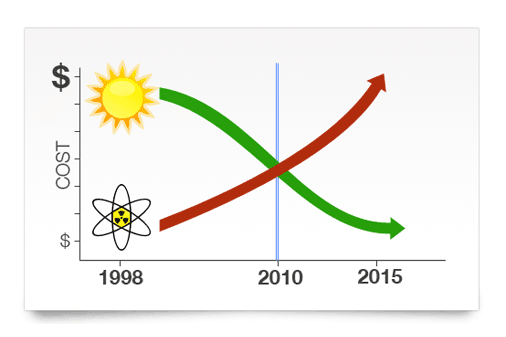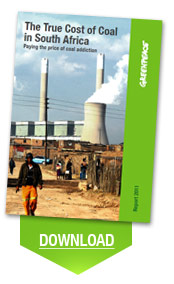All articles
-
Greenpeace ranks Pick n Pay, Massmart, Spar, Woolworths and Shoprite on commitments to a 100% renewable energy vision
Johannesburg, 19 April 2016 – South Africa’s top five retailers (Pick n Pay, Massmart, Spar, Woolworths and Shoprite) have a major role to play in shaping sustainable growth in the energy sector and need to champion South Africa’s transition to 100% renewable energy, according to the latest report launched today by Greenpeace Africa.
-
The Great Water Grab
Water is essential for all life on earth and plays a central role in human development: from sanitation and health, to food and energy production, to industrial activities and economic development. However, human activities are depleting our planet’s water resources at an alarming rate.
-
World’s coal power plants consume enough freshwater to sustain 1 billion people – Greenpeace
Johannesburg, 22 March 2016 - The world’s rapidly dwindling freshwater resources could be further depleted if plans for hundreds of new coal power plants worldwide go ahead, threatening severe drought and competition, according to a new Greenpeace International report.
-
Fukushima 5 years on: South Africa prioritizes nuclear over economy and education
On the 11th of March 2016 it will be five years since the devastating nuclear meltdown occurred at the Fukushima Daiichi nuclear power station in Japan. In 2011, a massive 9.0 earthquake unleashed a tsunami that devastated the seaboard and claimed the lives of 15 893 people. Another 6 152 people were injured and approximately…
-
Lost health and homes: the legacies of Chernobyl and Fukushima
Moscow, Kiev, 9 March 2016 - Survivors of Chernobyl are still eating food with radioactive contamination above permissible limits thirty years after the nuclear catastrophe forced hundreds of thousands of people from their homes.
-
License to Kill?
This paper provides an estimate of the health damages and economic costs that would be avoided if Eskom was made to fully comply with the national air emission standards -- the very standards it is currently trying to bypass.
-
Powering The Future
Our latest report, released on the eve of the BRICS summit in Durban, busts prevailing myths around green energy and reaffirms why renewables are the best option for powering South Africa.
-
Eskom has failed South Africans: it’s time for new management
Today, we joined forces with two other environmental organisation - Earthlife Africa Johannesburg and groundWork, to put South Africa’s energy utility, Eskom, under new management.
-
A Beginner’s Guide To Nuclear Power
Before a nuclear reactor lands on your doorstep, let's start at the very beginning with ten questions to get you clued up on what nuclear power is all about.
-
The True Cost of Coal
Catastrophic climate change and uncontrollable debt are burdens South Africans will have to bear for their government’s addiction to coal. On top of the escalating construction costs for Kusile, the monstrous coal-fired power plant, the country will have to pay up to R60.6 billion per year for the external costs associated with it.

